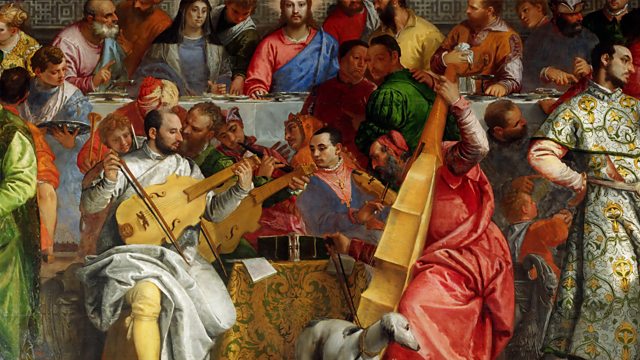Art - plunder, power and prestige
Cynthia Saltzman, Francesco da Mosto and Charles Saumarez Smith discuss art, power and national pride with Andrew Marr.
The looting of art in war time is nothing new, but Napoleon took it to new heights: demanding of his defeated enemies across Italy their most valuable statues and paintings. Cynthia Saltzman’s Napoleon’s Plunder tells the story of how the most magnificent works of the High Renaissance – by Leonardo da Vinci, Raphael, Titian and Veronese – went on triumphant display in the Louvre. She tells Andrew Marr how Paris was transformed during this period into the art capital of Europe, and the role art played in cementing the power of the new regime after the French Revolution.
One of the most extraordinary paintings taken during this time was Veronese’s Wedding Feast at Cana, stripped from the monastery of San Giorgio Maggiore, on an island in Venice in 1797. The Italian architect and presenter Francesco da Mosto considers what this theft meant to Venice’s political and cultural authority at the time. While many paintings were returned after Napoleon’s defeat at Waterloo, The Wedding Feast at Cana remains in Paris to this day, hanging directly across from the Mona Lisa. But Da Mosto looks at whether a 21st century solution – a digital facsimile – installed in the original monastery means that Venice can claim to have its Veronese back home.
As the former Director of three major British institutions, including the National Gallery, Charles Saumarez Smith understands the importance and prestige of a country’s national collections. In The Art Museum In Modern Times he explores the changes that have taken place in the past century – from the architecture of the buildings to the expectation of the visitors. Where once was a mission to instruct, educate and amaze, now the emphasis is on contemplation and individual experience.
Producer: Katy Hickman
Last on
More episodes
Broadcasts
- Mon 3 May 2021 09:00���˿��� Radio 4
- Mon 3 May 2021 21:30���˿��� Radio 4
Podcast
-
![]()
Start the Week
Weekly discussion programme, setting the cultural agenda every Monday


